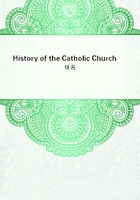
第15章
The struggle between the Papacy and the Empire, ending, as it did, in the downfall of the House of Hohenstaufen, put an end to the old conception of the universal monarchy presided over by the Emperor and the Pope. A new tendency began to make itself felt in European politics. Hitherto the feudal system, on which society was based, had served as a barrier against the development of royal power or the formation of united states. Under this system the king was sometimes less powerful than some of his nominal subjects, and was entirely dependent upon the good-will of the barons for the success of any action he might take outside his own hereditary dominions. This was the real weakness of the system, and so long as it remained the growth of Nationalism was impossible.
Gradually, however, by the exertions of powerful sovereigns the power of the barons was broken, the smaller states were swallowed up in the larger ones, and the way was prepared for the rise of the nations of Modern Europe. In France the policy of centralisation begun in the thirteenth century, was carried to a successful conclusion in the days of Louis XI. (1461-83). The English provinces, Aquitane, Burgundy, and Brittany, were all united to form one state, knowing only one supreme ruler. In Spain the old divisions disappeared almost completely with the union of Castile and Aragon under Ferdinand (1479-1516) and Isabella the Catholic (1474-1504), and with the complete destruction of the Moorish power by the conquest of Granada (1492). In England the slaughter of the nobility in the Wars of the Roses left the way ready for the establishment of the Tudor dominion. As part of the same movement towards unification Henry VIII. was declared to be King of Ireland instead of Feudal Lord, and serious attempts were made to include Scotland within his dominions. Inside the Empire similar tendencies were at work, but with exactly opposite results. The interregnum in the Empire and a succession of weak rulers left the territorial princes free to imitate the rulers of Europe by strengthening their own power at the expense of the lower nobility, the cities, and the peasantry; but, having secured themselves, they used their increased strength to arrest the progress of centralisation and to prevent the development of a strong imperial power.
As a direct result of this centralisation tendency and of the increase in royal authority that it involved, the rulers of Europe initiated a campaign against all constitutional restrictions on the exercise of their authority. The feudal system with all its faults was in some senses wonderfully democratic. The sovereign was dependent upon the decisions of the various representative assemblies; and though the lower classes had little voice except in purely local affairs, yet the rights and privileges of all classes were hedged round so securely by written charters or immemorial usage that any infringement of them might be attended with serious results. In England the Parliament, in Spain the Cortes, in France the States General, and in Germany the Diet, should have proved a strong barrier against absolute rule. But the authority of such assemblies was soon weakened or destroyed. Under the Tudors the English Parliament became a mere machine for registering the wishes of the sovereign; the Cortes and States General were rarely consulted in Spain and France; and, though the Diet retained its position in the Empire, it was used rather to increase the influence of the princes than to afford any guarantee of liberty to the subject.
In bringing about such a complete revolution the rulers were assisted largely by the introduction of the Roman Code of Justinian.[1]
According to the principles of the Roman Code the power of the sovereign was unlimited, and against his wishes no traditional customs or privileges could prevail. Such a system was detested especially by the Germans, who clung with great pertinacity to their own national laws and customs; but the princes, supported by the universities, carried through the reform on which they had set their heart. They succeeded in strengthening their own power and in trampling down the rights guaranteed to their subjects by the old Germanic Code, while at the same time they were untiring in their resistance to imperial reforms, and were unwilling to do anything to increase the power of the Emperor.
As a result of the development of arbitrary rule the lower classes had great reason to complain of the increase of taxation and of the difficulties of obtaining justice in the ordinary courts of law. They were ready to listen to the advice of interested leaders, who urged them to band together in defence of their rights against the usurpation of land owners and kings. As a result nearly every country in Europe found itself involved in a great struggle. The Peasants' War in Hungary (1514), the revolt against Charles V. in Spain (1520), the resistance of the Flemish Communes, led by Ghent, to the ordinances of the Dukes of Burgundy, the discontent of the lower classes in France with the excessive taxes levied by Louis XI., and the secret associations which prepared the way for the great uprising of the lower classes in Germany (1524), were clear indications that oppression and discontent were not confined to any particular country in Europe.